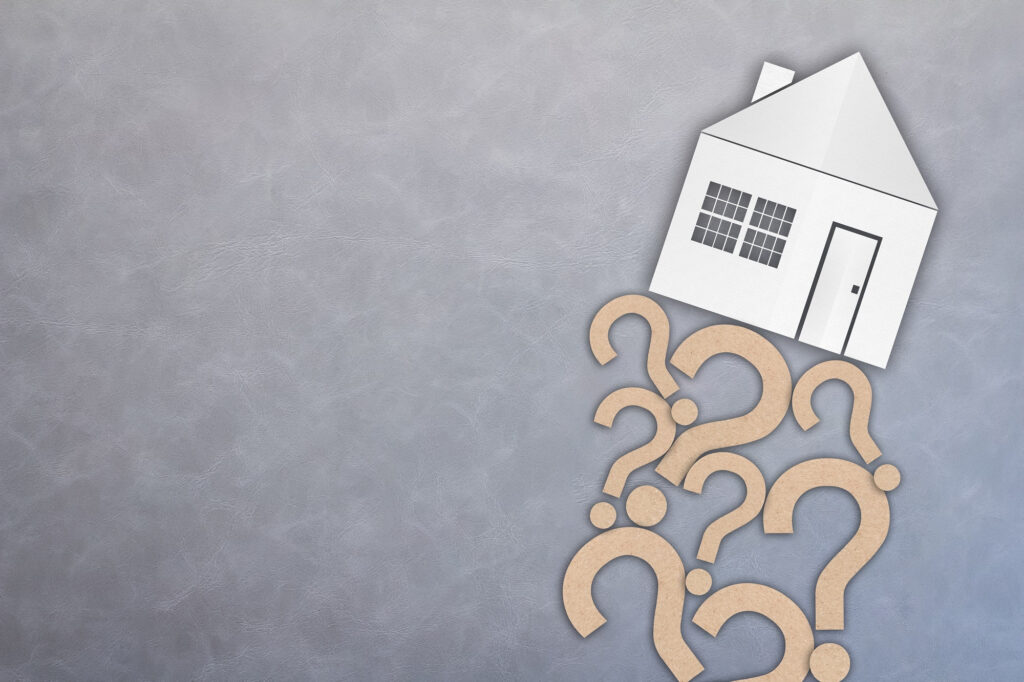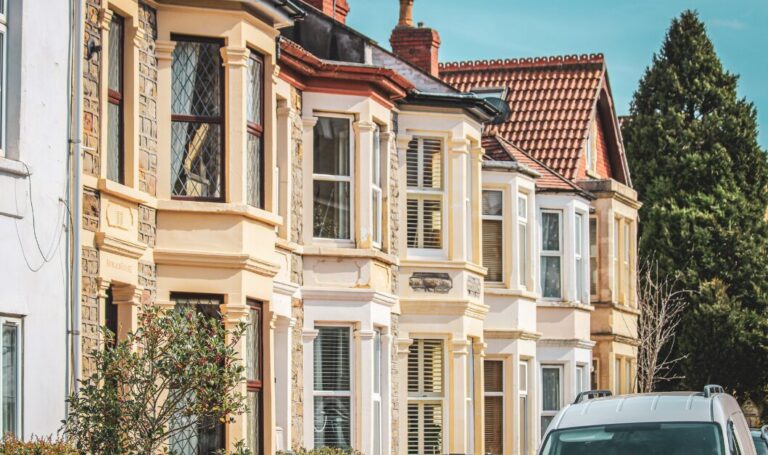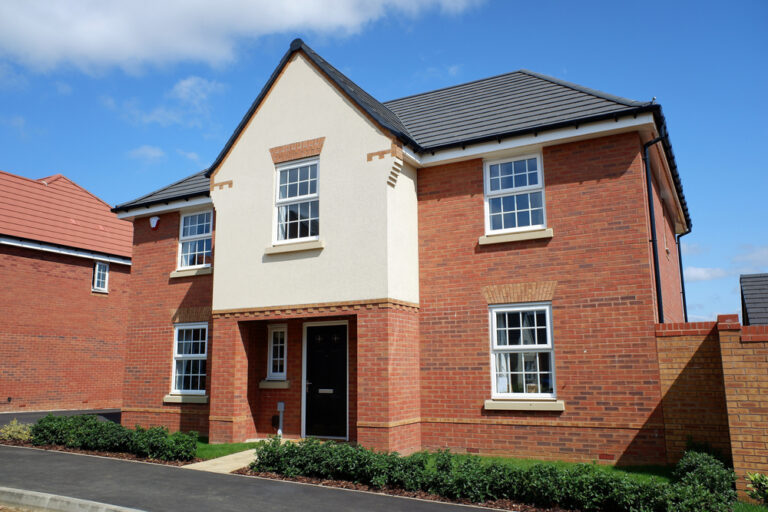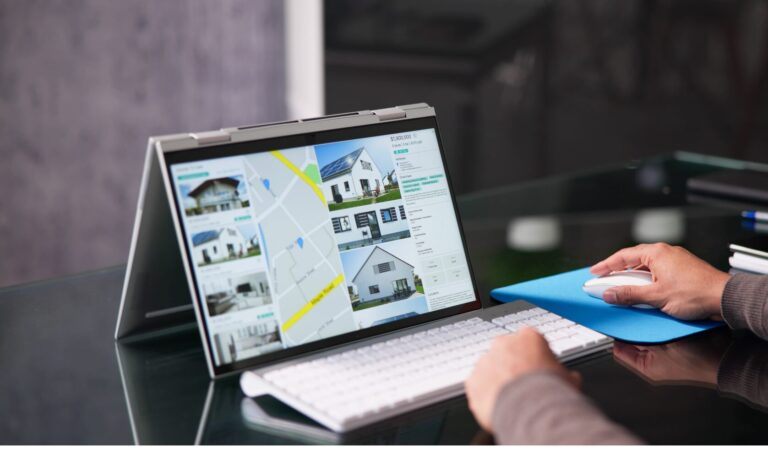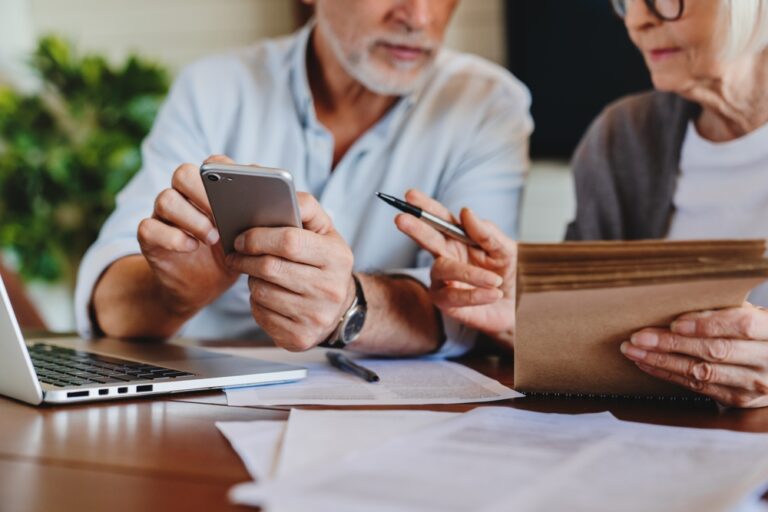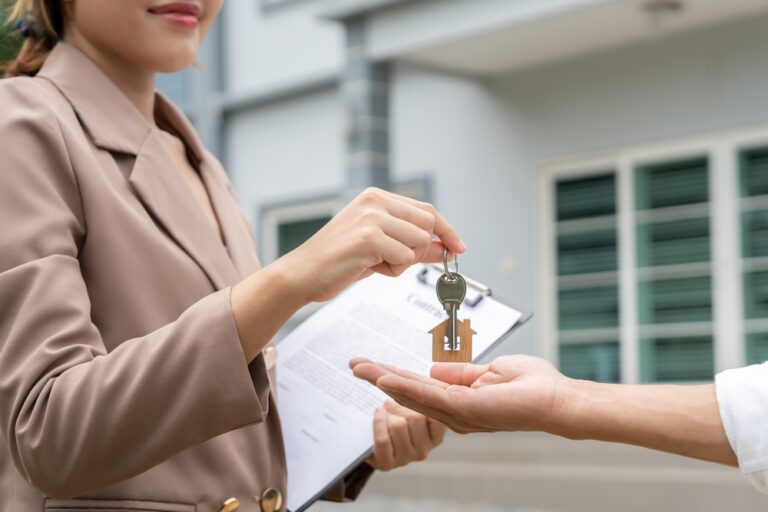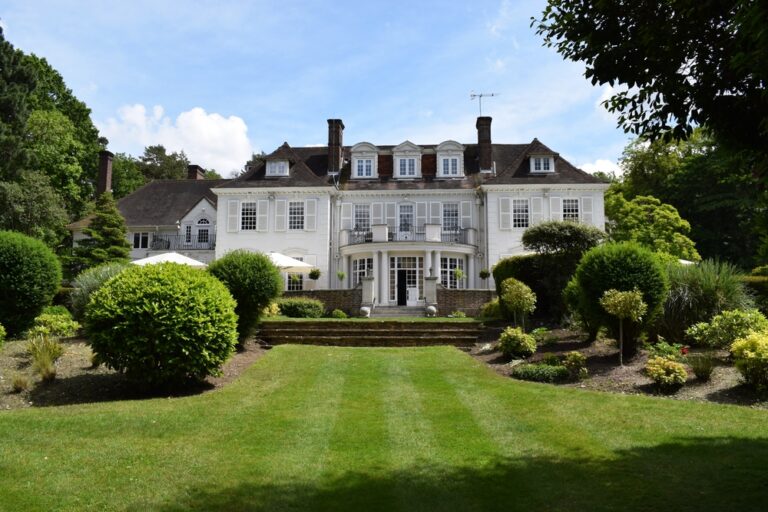The ‘should I rent or buy’ debate has been a long-standing one in the property sector.
And when the market is going through a period of change, it can be difficult to know whether it’s the right time to take the plunge and step on to the homeownership ladder.
In this guide, we look at the pros and cons of both renting and buying.
We’ll also outline all the major costs that come with renting and buying, so you can assess which is right for you, right now.
Should I rent or buy?
Whether you should rent or own a home will almost always come down to your personal circumstances and the market at the time.
While buying a home means you’ll have more security and a great investment for the future, renting comes with fewer up-front costs and can give you more flexibility.
Let’s look at the some of the benefits and drawbacks of both buying and renting:
The benefits of buying
- Buying a property can be a great investment for the future
- You could benefit from capital growth in your home over the long term
- It’s your home – so you can decorate it and make changes that suit you
- You have the added security of owning your own home
- The mortgage you pay may be cheaper than rent
The drawbacks of buying
- Buying a home comes with a lot of additional costs
- Owning a property can make things complicated in the event of a spousal break-up
- Interest rates can go up, which means you may end up paying more on your mortgage
- Selling a home can take time, which means it can be difficult to move quickly when you own your property
- Homeownership can be stressful and pressured due to the finances involved
The benefits of renting
- Renting a property gives you more flexibility to move quickly
- Renting a property can be arranged quicker than buying a home
- Renting carries a lower financial risk than buying
- By renting, you won’t have to worry about maintenance or repairs
- By renting, you may be able to live in an area where you couldn’t afford to buy
The drawbacks of renting
- By renting, you’re paying off your landlord’s mortgage rather than your own
- It’s harder to put down roots and settle in an area when you’re renting
- A rental property isn’t yours – so you can’t decorate or make changes
- Your rent could increase when your tenancy is due to renew
- You won’t benefit if the property grows in value over time
Is it cheaper to buy or rent?
In the short term, renting is usually cheaper than buying because renting comes with fewer up-front costs than purchasing a property.
However, long-term renting, for 10 years or more, can work out more expensive than owning a home.
When interest rates are rising, the cost of buying a property becomes more expensive because of increased mortgage repayments.
The example below is based on the average London property price and the average two-year fixed mortgage rate for first-time buyers with a 10% deposit in January 2023:
| Purchase price | Deposit (10%) | Mortgage amount (25yrs) | Interest rate (fixed, 2yrs) | Monthly repayment |
| £530,396 | £53,039 | £477,356 | 4.82% | £2,741 |
This compares with an average monthly rent in London of £2,480, according to Rightmove’s Rental Price Tracker.
The cost of buying a house
Compared with renting, buying a property comes with more expensive up-front costs, including:
Purchase price
Property prices have been rising consistently and the average cost of the home in the UK stood at £294,910 at the beginning of 2023, according to Rightmove.
In Greater London, prices rose by 6.1% between January 2022 and January 2023, in line with the nationwide increase of 6.3%.
However, with mortgage interest rates increasing alongside other cost of living pressures, property price growth is expected to slow and possibly even fall through 2023.
Deposit
One of the biggest homeownership barriers for first-time buyers is saving a deposit.
According to the Halifax, the average deposit required by a first-time buyer reached more than £62,000 at the start of 2023.
That figure is based on the average cost of a first-time buyer home (£302,010) and the average first-time buyer deposit being 21%.
In London, The Halifax estimates the average first-time buyer deposit is more than £100,000.
That means a first-time buyer couple with a household income of £100,000 and saving £1,000 per month would take just over nine years to save enough to buy a home in in the capital.
The larger your deposit, though, the less you’ll need to borrow through a mortgage.
That means your monthly repayments should also be lower.
A larger deposit could also give you access to more attractive mortgage interest rates, further lowering your monthly repayments.
Most mortgage lenders will request at least a 10% deposit, although first-time buyers have options to some schemes to help them on to the property ladder with a lower deposit:
- Shared Ownership – 5% deposit
- The 95% mortgage guarantee scheme – 5% deposit
Stamp duty
Stamp duty is another large up-front cost when buying a home.
However, for first-time buyers, relief is available.
If you’ve never owned a property before, you can claim stamp duty relief on the first £425,000 of a property’s purchase price.
You then pay 5% stamp duty on any amount between £425,001 and £625,000.
This means a property at the average London price of £530,396 would mean a first-time buyer stamp duty bill of £5,269.
Legal and conveyancing fees
When buying any property, you’ll need a solicitor to complete the legal work for you.
Solicitor fees can vary but expect to pay between £800 and £2,000 depending on the type of property you buy.
Mortgage fees
When you take out a mortgage to buy your first home, you’ll need to pay certain fees to your lender.
These may include a product or arrangement fee, plus a valuation fee.
Mortgages are available without product fees, but these are usually at a higher interest rate.
Your lender’s valuation fee is payable up front and covers them valuing the property you’re buying.
Survey fees
When buying a home, it can be a good idea to have a survey carried out.
A survey will tell you that what you’re buying is structurally sound and in good order or highlight any potential issues before you commit to your purchase.
You should expect to pay between £400 and £1,500 depending on the type of property you buy and the level of survey you choose.
Ongoing costs
Your ongoing costs when buying a home may include:
- Council tax
- Energy bills
- Water and sewerage
- TV licence
- Broadband
- Property maintenance
- Buildings, contents, and life insurance
The cost of renting
There are a range of up-front and ongoing costs you’ll need to pay when you’re renting, including:
Holding deposit
If you wish to secure a rental property you like, you may have to pay a holding deposit to the landlord or letting agent.
Holding deposits are capped at one week’s rent and can be rolled into your other up-front costs if your tenancy goes ahead.
If the landlord decides not to rent to you, your holding deposit should be returned in full.
If you decide not to go ahead, or provide the landlord with misleading information, however, you may lose your holding deposit
Security deposit
When you agree to a tenancy, you’ll need to pay a security deposit.
Deposits are capped at five weeks’ rent if the annual rent doesn’t exceed £50,000 and six weeks’ rent if it does.
Your landlord must register your deposit in a tenancy deposit protection scheme within 30 days of receiving it.
Rent up front
There’s no legal cap on the amount of rent you can be asked to pay up front at the start of a tenancy.
In most cases one- or two-months’ rent may be payable up front – but this may be more if you have a poor credit history or there’s an issue with your references.
Ongoing costs
Some of the ongoing costs you may have to pay throughout your tenancy include:
- Council tax
- Energy bills
- Water and sewerage
- TV licence
- Contents insurance
- Broadband
What is the 5% rule when comparing renting vs buying?
The 5% rule is a general test you can apply to see if renting is cheaper than buying.
The rule takes into account ‘unrecoverable costs’ at 5% a year when buying – such as stamp duty and ongoing property maintenance costs that you don’t have to pay when you rent.
To apply the 5% rule, take the purchase price of a property you wish to buy and multiply that figure by 5%.
Divide the number you get by 12 and this gives you a monthly ‘break even’ figure.
If you can rent a property for less than this figure in the place where you want to buy, you may be better off renting.
For example, if you were thinking of buying a property at the average London price of £530,396, your ‘break even’ figure would be £2,209.
With an average rent in London of £2,480, buying may make more sense.
Things to consider before buying a home
1. Ask yourself where you’d like to be in five- or 10-years’ time
Are you likely to need to move again within five or 10 years? If so, you may be better off renting a property until you’re ready to settle in one area.
Buying and selling property involves a lot of major costs, including:
- Possible stamp duty when buying
- Solicitor fees when buying and selling
- Estate agent fees when selling
- Removals costs when buying and selling
These costs can mount up and if you’re likely to move again within a short period of time, you’ll be paying many of them again very quickly.
2. Do you prefer security, or flexibility?
Some people like the security of putting down roots, while others prefer to have options to move around.
If you’re on the side of security, buying a home could be the right step for you.
But if you need the flexibility to move between towns and cities more frequently, renting will give you more of an opportunity to do that.
3. Are you likely to benefit from inheritance later in life?
Inheritance isn’t something any of us like to think about as it involves losing loved ones.
But if you’re likely to inherit money from parents or other relatives in the future, this can affect your decision on whether to buy or rent.
If inheritance is unlikely, you may want to try to buy your own home sooner, as this could give you added financial security for the future and boost your pension.
But if you’re likely to inherit money in the future, you may be happier to rent for the short to medium term and then invest your inheritance in your own home further down the line.
4. Are the ongoing costs of owning a property affordable?
Being a homeowner means you’ll be responsible for maintaining your property and ensuring you’re protected financially – and that means lots of ongoing additional costs.
The ongoing costs of owning a property could include:
- Maintenance costs for major items like boilers and heating systems
- Unexpected maintenance costs like repairing a damaged roof or dealing with leaks
- Ongoing costs for insurance like buildings and contents cover
These costs aren’t generally your responsibility if you’re renting, so you’ll need to make sure they’re affordable if you’re planning to buy.
Things to consider before renting
1. Are you likely to move, perhaps due to work, within the next two years?
If you’re likely to move again within a short period of time, renting could give you the flexibility to do so.
You’ll have no property to sell, which can take time, and you’ll just need to give your landlord the appropriate notice.
Tenancy agreements usually last between six months and two years, although longer agreements are sometimes possible, so make sure you sign an agreement that suits your future plans.
2. Would you benefit more from renting and paying into a pension scheme, rather than buying a property?
While retirement might seem a long way off, it can pay to start thinking about how you’ll fund your future now.
Buying a property can be a great way to add financial security later in life and boost your pension fund, but there are other options, too.
Depending on your financial circumstances, you may be better paying more into a pension now and renting, rather than committing to homeownership.
The best way to explore your options is to speak to an independent financial advisor or financial planner.
3. How important is a property’s look and style to you?
If you’re keen to put your own stamp on a property and make it feel like a home, renting might not be the best option.
While some landlords might be happy for you to decorate their rental property, others may be less enthusiastic.
And either way, you should never do decorating work without your landlord’s permission.
By buying a property, you’ll be able to make it your own and make it work for you.
4. Are you uncomfortable with taking on lots of financial risk?
Owning your own home is a huge responsibility.
Your mortgage will be secured against the property, so if you’re unable to pay it back, you could end up at risk of losing your home.
You’ll also be responsible for all the other costs that come with homeownership.
If you don’t feel ready for that kind of financial responsibility, you may be best off renting until you do feel ready.
Further reading…
Five things you should always consider when buying a new home
The best London property hotspots for first-time buyers revealed
